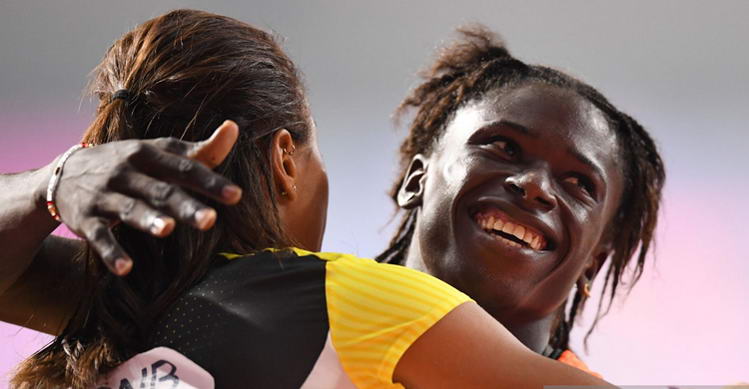Nigerian sprint star in middle of athletics’ hormone debate
Hailing from one of the world’s poorest countries, Nigerien sprinter Aminatou Seyni is no stranger to life’s hurdles, but as she prepares for the Tokyo 2020 Olympics, the 23-year-old faces fresh obstacles.
Despite clocking the fifth-fastest time in the 400 metres last year, Seyni may not be able to compete in her favoured event because she refuses to take hormone suppressants for elevated testosterone levels.
In 2018, World Athletics, the sport’s international governing body, imposed a testosterone cap for races between 400m and a mile, arguing that hyperandrogenous female athletes enjoy an unfair advantage at those distances.
The rule, which also affects the South African double Olympic 800 metres champion, Caster Semenya, will likely limit Seyni to the 200 metres in Tokyo.
“I feel a little bit sad because if I ran the 400 metres I could have won a medal, but for the 200 there are a lot of athletes that are better developed,” said Seyni, wearing a pink windbreaker and blue leggings, as she took a break from training in Senegal’s capital, Dakar.
Like Semenya, Seyni, who has a deep voice and powerful physique, refuses to take medication to reduce her testosterone levels.
Semenya said the treatment made her constantly sick when she took it earlier in her career and she is appealing a decision last year by the Court of Arbitration for Sport (CAS) upholding the World Athletics’ rule.
Seyni was barred from competing in the 400m at November’s world championships in Doha following a breakout season in which only two runners posted faster times.
She reached the semi-finals in the 200 metres in Doha. She is also aiming to compete in the 100 metres at the Olympics.
Despite the disappointment of likely exclusion from the 400m in Tokyo, Seyni is determined to try for what would be only the second Olympic medal since 1972 for Niger, an arid West African country ranking last on the U.N. Human Development Index.
“I only want to concentrate on the 100 and 200 to see how it goes, because it’s different,” she said. “I’ll do my best to see if I can win a medal.”
(Reuters)



